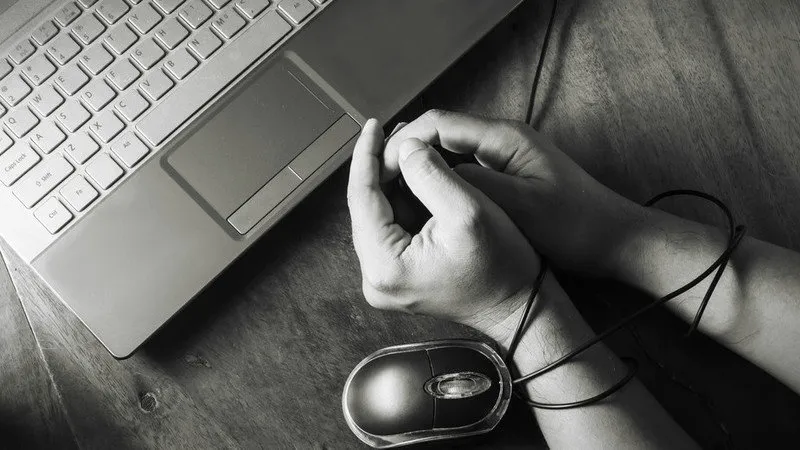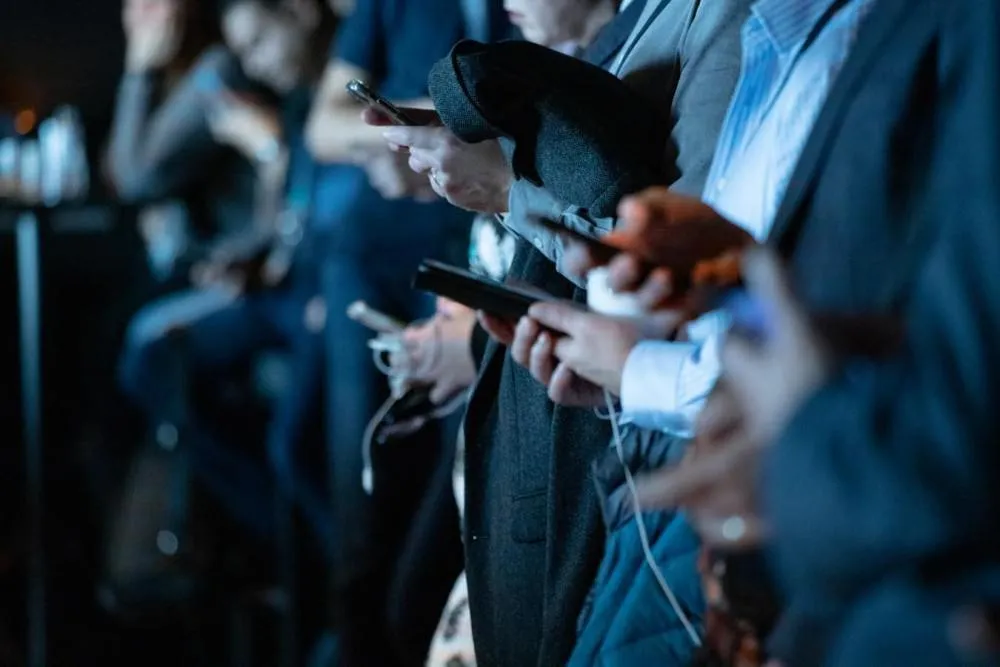Scientists are noticing that the popularity of smartphones and social media has become dangerous. In the Western world, it is said that ‘screen addiction’ has appeared among young children and is growing rapidly. Addiction means addiction. The word is used more in the case of drug use. Now people in Europe and America are saying that addiction to the screen has become as horrible as cocaine addiction. Studies have shown that young children spend five to eight hours a day on digital devices. Interest in all kinds of face-to-face interactions like going out, playing sports, sitting face to face, etc. is declining.
The fear of such a harmful trend was first awakened in the minds of the big people in the world of technology. A few years ago, they issued a warning in this regard. As many of us now know, the late Steve Jobs, the founder of the world-famous digital technology company Apple, did not allow his children to use the iPad made by his own company. He once remarked to the New York Times, "The use of digital technology is literally changing the relationship between society and person, person to person." And only God knows what damage is being done to the brains of our children. '
Tim Cook, Apple's current chief operating officer, told the Guardian he knew he would have to give his children smartphones at some point, but he was trying to be as late as possible.
Technology Addiction: 5 Ways to Fight Back
Microsoft founder Bill Gates did not allow his two daughters and one son to use the phone until he was 14 years old.
Sean Parker, Facebook's first chairman, told the New York Times after leaving Facebook, "The momentary, dopamine-driven feedback loops we've created are undermining the normal functioning of our society." No social dialogue, no mutual cooperation; There is misinformation and lies. 'He no longer uses Facebook. But they (the children) have no control over themselves, so I don't let them use that "sheet."
Athena Chavarria, a former executive assistant at Facebook, said: "I'm sure the devil lives in our phones, he's chewing on the children's heads." Yet they have strictly set deadlines for using their phones at home. He believes that the boy or girl in a class who has the phone in his hand will do the best after all.
Scientists and technologists who have been creating digital devices for a long time know best how these devices consume the brains of children. Now they are the ones who are expressing the most concern. As Chris Anderson, chief executive of an American robotics and drone company, said, "We thought we could control this technology. But as it turns out, it's out of our control. It goes straight to the pleasure centers of the developing brain. It's impossible for ordinary parents to understand that. "
Steve Cutts - Are You Lost In The World Like Me?
A large number of digital technologists, computer programmers, and entrepreneurs are trying to keep children away from digital devices and apps they have created. A common perception among Silicon Valley technologists in the United States is that the risk of children and adolescents becoming addicted to digital devices is greater than their role as tools for learning or acquiring knowledge. The detrimental effects of this addiction are being caught in the research of psychologists and behavioral scientists: the mental and intellectual development of children and adolescents is being hampered, various problems are appearing in their behavior.
Researchers at the Cincinnati Children's Research Foundation in the United States recently observed the activity of children's brains with the help of magnetic resonance imaging (MRI) technology. They noticed that when children read something, their brain function (functional brain connectivity) increased. And when they see audio-visual content on the screen of a digital device, their brain connection is reduced. Researchers, therefore, suggest that children need to increase their reading time and reduce their screen time for healthy brain development. The American Pediatric Association and the American Psychological Association are advising parents in that country to set a 'screen time limit' for children.
More than 900 families of Silicon Valley technicians are struggling to reduce their children's addiction. The number of families whose children have been completely banned from using all types of digital devices is growing rapidly. These families are called 'No Tech Homes'. Even nannies in those families have to make an agreement not to use the phone while they are at home.
Teenagers from families who have become so addicted to the screen have found it most difficult to rescue. Some parents are trying to explain to them how the devices work on their brains. Technology companies have created these devices for the purpose of making a profit by manipulating the human brain.
The heart of digital technology in the world Such conservatism may seem inappropriate in the twenty-first century in the news of such coercion on the children of families in California's Silicon Valley. Some say we're just scared. The journey of science and technology is always ahead; It is up to mankind to figure out how to use the new technology to make the most of it. There is nothing to worry about.
But if the addiction to the screen of the device is as harmful to the developing brain of human beings, especially children and adolescents as drug addiction, then it is not possible to sit idly by. We need to find a solution now. Psychologists are heard to say that if that path is very strictly controlled, it is unlikely to be effective. ‘No tech home’ or ‘no screen time budget’ is not the right solution. Moderation must be adopted. Silicon Valley families also have moderate parents. They do not want to completely ban the use of digital devices by children; Want to reduce usage time and emphasize proper use. For example, some parents allow their children to play brainstorming games, puzzles, etc. for a limited time but do not allow them to watch videos on YouTube. Some families sit with their children one day a week and watch a good movie. There is an ongoing debate about reducing screen time. There are different opinions about how much time children should be allowed to use digital devices daily, how much is more, and how much is less.
Psychologists say that if the device is snatched from the hands of children, that gap needs to be filled with something else. US Clinical Child and Adolescent Psychologist. Robert Myers thinks that just reducing the screen time of children and teenagers without constructive and enjoyable alternatives can make them feel unhappy, they may say, they don't like to do anything. So we have to make arrangements for them to read interesting books. Parents also need to take part in reading with them, talking about what they read. Every day you have to read different types of books outside the class book, you have to discuss it.
The emphasis is on reading because when people read, their brain activity increases a lot. But the life of children and adolescents cannot be made happy just by being stuck in reading, intellect cannot be developed. In addition to reading, sports opportunities should be given, it is very important to increase their face-to-face interaction. Arrangements are being made to visit the natural environment during the summer holidays for such activities when no digital device is used. ‘Screen-Free Summer Camp’ is becoming increasingly popular.
All that has been said so far is about European-American children and adolescents, their parents, and scientists-researchers. In our country too, the tendency towards addiction or overuse of digital devices is almost the same. The difference is that European-American parents are thinking about their children, looking for ways to rescue them from digital addiction, and we have no qualms. On the one hand, our children are deprived of the joys of childhood and adolescence in the competition to get good results in exams, on the other hand, they are addicted to digital games, video games, and social media.
Is anyone thinking of rescuing them?

